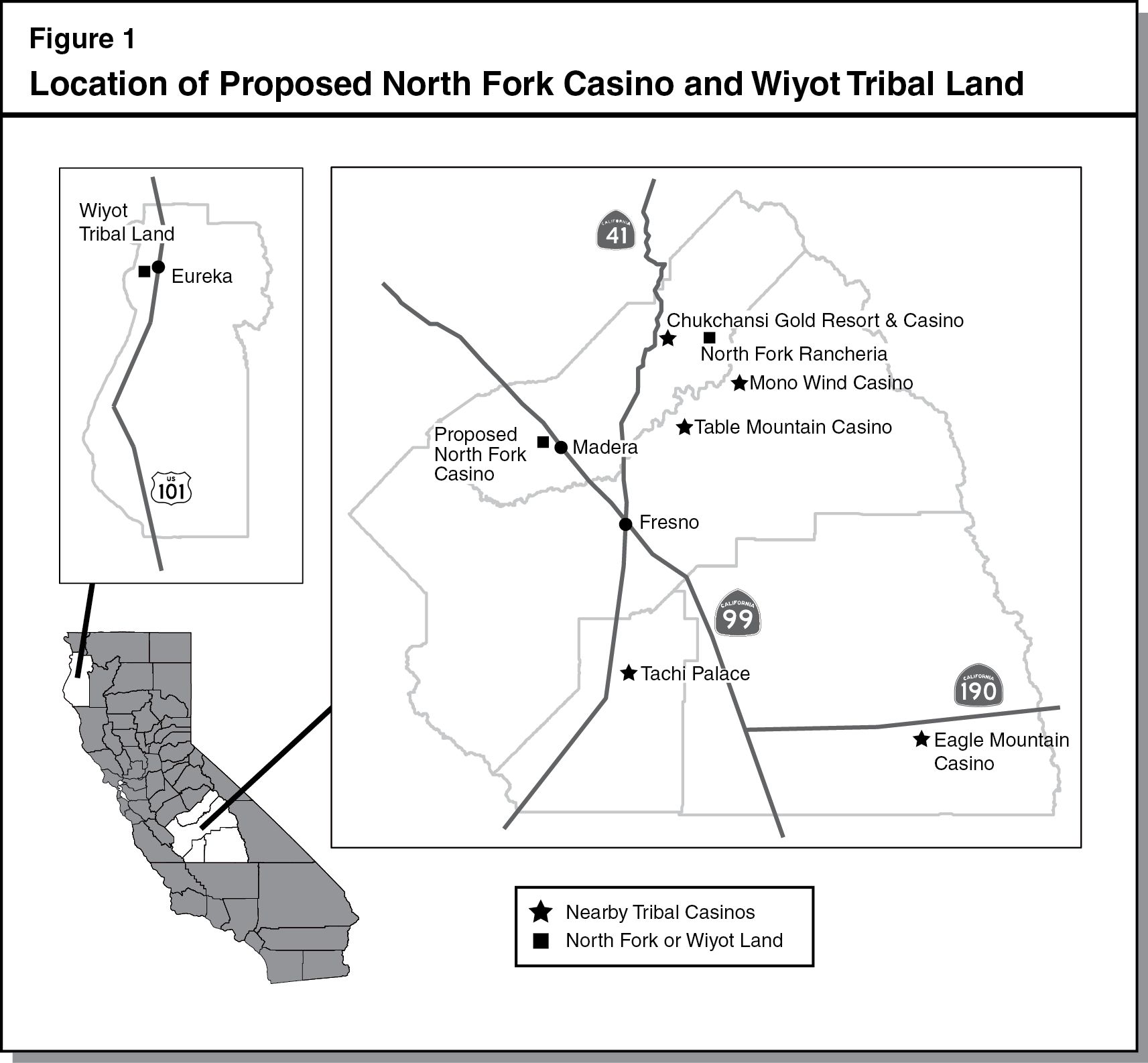Proposition 48 Opponents Say It Will Lead to State-Wide Gambling Expansion

Proposition 48 affects the building of tribal casinos and Vegas-style gaming on non-tribal land by North Fork Rancheria of Mono people and the Wiyot tribe. The proposition would allow the North Fork to build a casino in Madera County and share revenue with the Wiyot tribe.
Proposition 48, or AB 277, was originally a tribal-state compact between the North Fork and Wiyot tribes that California ratified in March 2013. Under California’s state constitution, enacted legislation can be brought before voters as a referendum before going into effect.
The North Fork Mono people have stated more than a few reasons as to why they believe their tribal-state compact should be honored and receive a “yes” vote during the general election. Their website headers read: “As a ‘landless’ tribe we had no ‘reservation’. We carefully, respectfully rebuilt our tribe, replaced a small portion of our lost tribal territory. This is not ‘reservation shopping’; this is ‘reservation restoration’ -- with the full cooperation and agreement of local, state, and federal partners.”
A New York hedge fund, Brigade Capital Management, has supported the “no” vote in order to protect investments made in the Table Mountain Indian Casino in nearby Fresno County, as reported by the Sacramento Bee.
Organizations, such as Stand Up for California, have condemned the building of new casinos off tribal land, fearing an inevitable expansion of Vegas-style gambling throughout the state. Cheryl Schmit, the executive director of Stand Up for California, wrote an opinion articles for SFGate, stating:
“There are already 71 operating tribal casinos. California has 70 groups petitioning for federal recognition. We anticipate 34 new tribes to be added to California’s 109 tribal governments. Of those, we can anticipate 22 new casinos but this time in more urban areas, including the San Francisco Bay Area.”

An article for the LA Times argues for the enactment of AB 277 and a yes vote on Proposition 48, believing the issue is more of a have-nots versus the haves than the possible spread of Vegas-style gambling.
“Of course, tribes with casinos want to protect their market share," the article says. "But to put a referendum on the ballot hoping for a 'no' vote is cynical, an unfair attempt to block a competing tribe that has followed the rules, worked with the community and spent a decade getting approvals.”
A total of nine million dollars has been raised against the proposition by various organizations with the largest contributions coming from Stand Up for California ($4,876,666.99), Other organizations include the Table Mountain Rancheria ($2,028,099) and Brigade Capital Management LLC ($1,666,769), as reported by the cal-access and Ballotpedia.
The North Fork Mono people, on the other hand, have raised less than half a million dollars for the “yes” vote campaign through the Democratic State Central Committee of California and Station Casinos LLC.
The compact includes a sizeable portion of central California’s Madera County -- 305 acres to be exact, north of Fresno.
The immediate fiscal benefit for local Madera County governments would be a onetime payment of $16 million to $35 million from theNorth Fork tribe. The Wiyot tribe would receive a stipend of six million dollars annually for 20 years.
Further, annual payments of around $10 million will be given to state and local governments for 20 years in order to cover the costs of operations. This does not include any possible increases in traffic expected for Madera County businesses and localities.
By building a casino in Madera County, state and tribal officials intend to curtail any damage that could be done to the wildlife and environment of the Sierra National Forest and Humboldt Bay National Wildlife Refuge located on tribal land. The compact does, on the other hand, alleviate the restrictions imposed by the California Environmental Quality Act as a result of agreements made during the creation of AB 277.
Current state regulation regarding gaming was established in 2000 under proposition 1A, which allows for tribal casinos to offer slot machines, lottery games, and certain card games on tribal land. The new compact would allow the North Fork to operate with up to 2,000 slot machines and adjust that amount to meet future competitor’s standards.
In the 2014 election, Proposition 48 will determine the fate of a casino and future gaming restrictions. It will also showcase the power of public opinion over legislative action.
Photo Credit: ruigsantos / shutterstock.com




